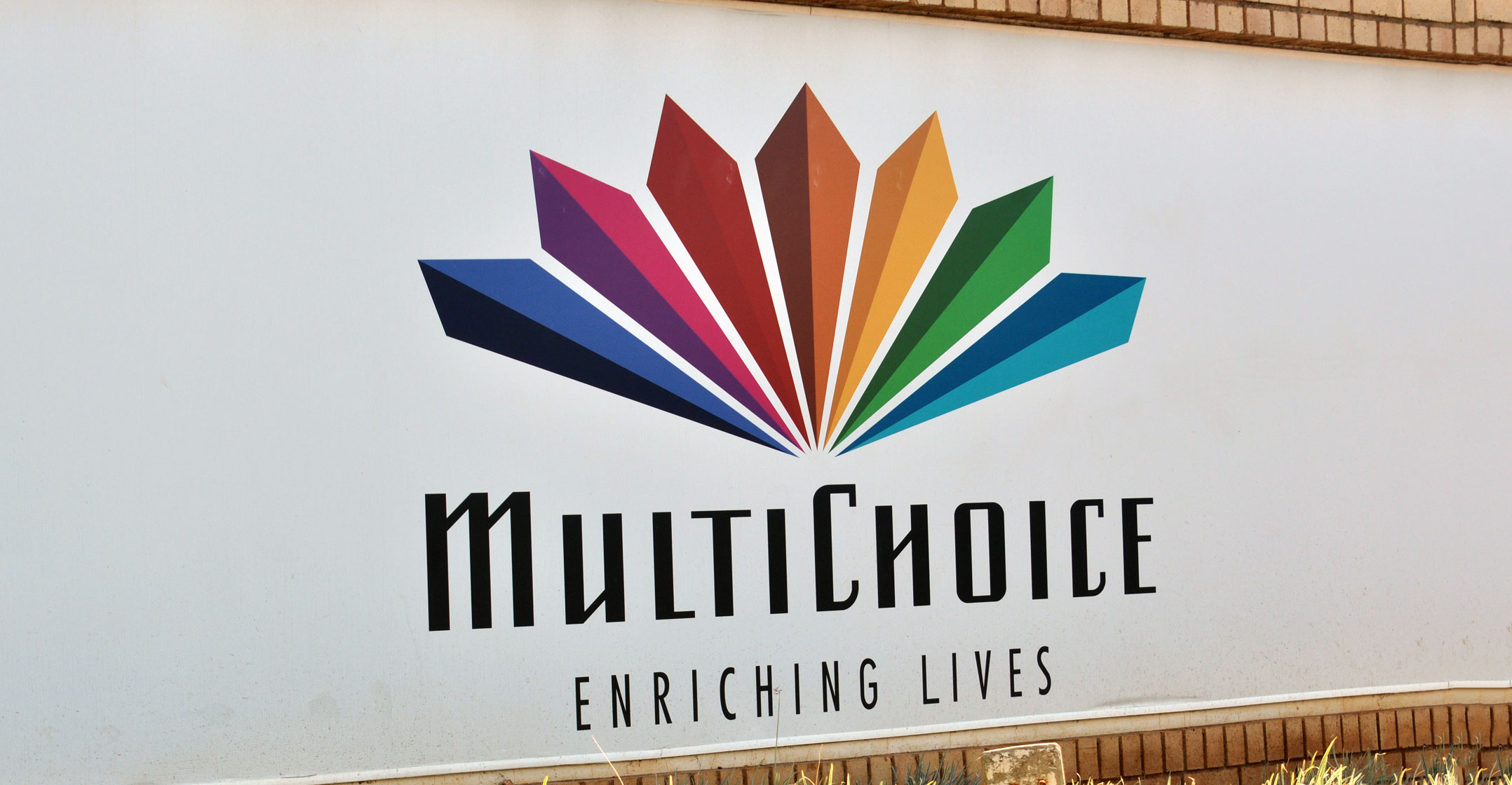
The decline in the number of subscribers to MultiChoice Group’s priciest pay-television bouquet, DStv Premium, accelerated slightly in the year to March 2019 and the broadcaster is actively looking at ways to stem the erosion, chief financial officer Tim Jacobs said in an interview with TechCentral on Tuesday.
Jacobs declined to provide exact numbers — former parent Naspers had previously disclosed this information — but said there had been an “uptick” in DStv Premium subscriber disconnections compared to the loss of 40 000 customers in this segment in the 2018 financial year.
He blamed the losses in the lucrative top end of the market on the weak economy as well as the ability of consumers with broadband connections to seek out alternatives from “over-the-top” (OTT) providers such as Netflix, Amazon and YouTube.
Though MultiChoice added 1.6 million subscribers across its 50 markets in Africa in the past year, that growth came from lower-priced — and presumably lower-margin — bouquets. As a result, the group’s average revenue per user declined from R335 to R322/month.
The broadcaster, Jacobs said, is trying to arrest — or at least slow — the decline in the Premium segment by improving its online streaming offerings, including Showmax, which now offers live sporting events. It is also “working very hard” to improve the user experience of these products. Lastly, it decided against a price increase for DStv Premium customers in 2019, with the scope for short-term price hikes also very limited.
Read a shortened version of Jacobs’ interview with TechCentral editor Duncan McLeod below.
McLeod: DStv Premium is under pressure. What do the numbers look like?
Jacobs: The challenge you have at the top end of the market, in South Africa in particular, is two-fold. The first is affordability – we’ve seen, consistently for the last three years, a stable level of churn at the top level of the market. However, it has accelerated a little bit for financial year 2019. Consumers are under deep pressure. Secondly, there is more intense competition in the OTT space. Telecommunications operators are out with their own products and we are seeing the big global players operating in our market — a combination of the Netflixes and the Amazons and the YouTubes and the like. A combination of those elements is putting pressure on the top end of the market. But we are not seeing a dramatically different trend to what we’ve seen in the past three years, so our retention capabilities are still working relatively well. You will have seen we put a 0% price increase into the market for this coming year and that is helping stabilise that base as we go forward.
 McLeod: The decline in the DStv Premium numbers last year was about 40 000. What does that number look like in the 2019 financial year?
McLeod: The decline in the DStv Premium numbers last year was about 40 000. What does that number look like in the 2019 financial year?
Jacobs: We’re not sharing specific Premium numbers, but what I can say is it was a bit higher than what we saw last year. We are definitely seeing an uptick in the number of subscribers that have come off that base.
McLeod: You’re offering value-added services to that base, like the Joox music streaming service. But what other measures are you putting in place to try and further stem that decline?
Jacobs: You know we offer our OTT products to our Premium subscriber base for free. We are enhancing that all the time. There are three strategies we are deploying in OTT. Firstly, we have introduced sport as a test run to see how the subscriber base reacts to getting that on Showmax. Secondly, we have been working very hard to improve the subscriber experience. We have made significant strides in the past year to improve how you navigate the app. There’s still some improvement to go, but we have started to see some positive feedback from customers. The third thing we are doing is improving the search engine that helps you with content discovery. We’re really trying to enhance these OTT products to support customers. We are also locking prices, like we did on DStv Premium for the year ahead. If affordability is the issue, we really don’t want to put the customer under any more pressure than they already are.
McLeod: I guess that means you are limited in terms of any future price increases you can put through in the Premium segment?
Jacobs: If the economy stays as tough as it is for consumers, where people are under real price pressure … we would certainly be quite circumspect in putting price increases into a part of the market where you are seeing such big churn. But if circumstances change, and we start to see a resurgence in the South African economy, and consumers start to get real increases in their salaries and wages, then I think the opportunity to start increasing prices again is back on the table.
 McLeod: You mentioned in the results that your online streaming customer base has basically doubled. I’m guessing you’re not disclosing user numbers?
McLeod: You mentioned in the results that your online streaming customer base has basically doubled. I’m guessing you’re not disclosing user numbers?
Jacobs: We’re not, simply because that is such a competitive space that, whenever possible, we try to keep total numbers under wraps. We did give some indication on the roadshow (ahead of the listing) a couple of months ago as to what proportion of the total base is active (on streaming). At the time, it was about 9% of the total base.
McLeod: How are your plans to launch a “dishless” or standalone online streaming offering coming along?
Jacobs: It’s going relatively well. We are quite far advanced with our product development and testing. Obviously, a key area we are looking at by introducing a product like this is wherever possible to take costs out of the distribution chain. It reduces the cost of acquisition for a subscriber, so someone who is on broadband already … this would be a product they could use in their home without spending money on a periodic basis for a decoder…
McLeod: MultiChoice provides a fairly hefty subsidy to consumers on the purchase of a decoder, so do you see an online-only product being cheaper than your satellite-based service?
Jacobs: Not necessarily. But you wouldn’t have to invest in a R1 000 decoder and an installation on your roof. So, the benefits will come indirectly from the other products you won’t have to buy.
 McLeod: But I assume the cost to MultiChoice will be lower because there is no satellite distribution cost involved — though I suppose that’s a fixed cost for the group no matter how many subscribers it has — and, of course, there’s no subsidy for the decoder, so I’m assuming the cost of acquiring and then delivering services to an online-only subscriber is lower. Is that right?
McLeod: But I assume the cost to MultiChoice will be lower because there is no satellite distribution cost involved — though I suppose that’s a fixed cost for the group no matter how many subscribers it has — and, of course, there’s no subsidy for the decoder, so I’m assuming the cost of acquiring and then delivering services to an online-only subscriber is lower. Is that right?
Jacobs: No, because the way you deliver that product is still via satellite. You distribute via CDN (content distribution network) or other technology, but remember our satellites have locked-in contracts over 15 years.
McLeod: Do you see the distribution of video entertainment content in, say, 10, 15 or 20 years’ time being done entirely online instead of via satellite?
Jacobs: If you go that far out, it’s always difficult to call. The challenge that Africa has always had is if you look at the geographic dispersion of people across the continent, outside the major centres, it’s going to be almost impossible to solve that problem using broadband or a fixed-line solution. If 5G or some other future distribution platform was to become more pervasive at low data costs, that could potentially change things in the long term. But there is a long history of telcos not being able to deliver as easily as you see in first-world countries. Africa is a difficult place to manage these kinds of dynamics. — © 2019 NewsCentral Media

